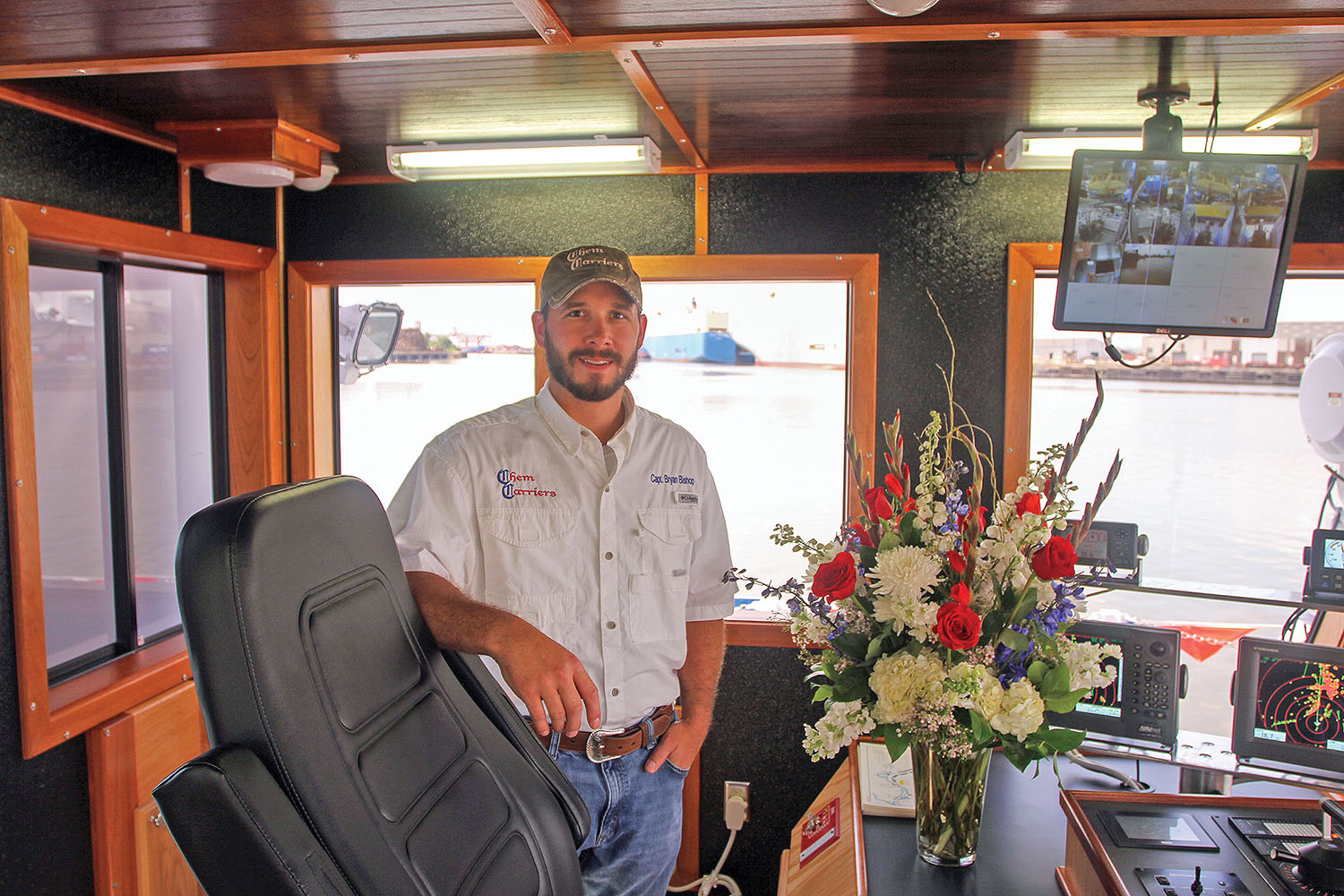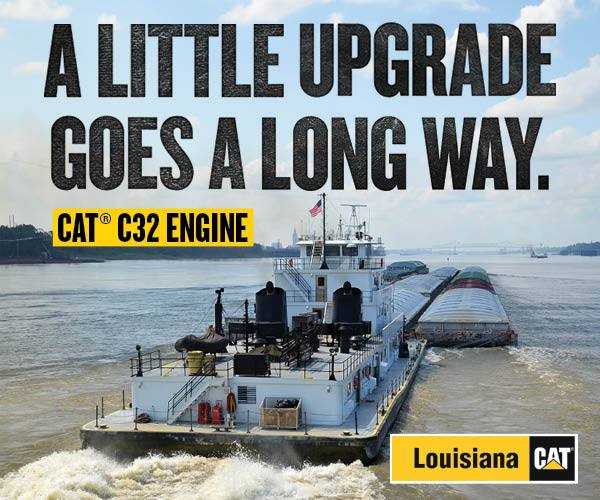Bryan Bishop’s dad was a captain when Bryan was born in Fairhope, Ala.—and is currently a captain on fishing vessels in the waters of the Bering Sea for the company Ocean Peace Inc. Although Bryan went to work with his father in Alaska during his teenage years, he resisted the call of the waters for a while.
“I thought about a career in connection with wildlife conservation,” he said. “I studied a couple of years at Southern Union Community College in Opelika, Ala, and Faulkner State Community College.”
After a few years of working in construction and asphalt while pursuing his studies, he realized that he needed a change. “In 2008, I went back to work on a boat. About a week later I called my girlfriend (later wife) and discussed a career on the water.”
Bishop’s father-in-law introduced him to a guy named Richard Smith who worked for a lumber mill, so Bishop’s first towboat job as mate pilot was for Anderson-Tully Timber Company in Vicksburg Miss., a small fleet with one boat (the mv. CJ Tully) and 18 barges owned by the mill. The boat pushed barges of logs along the Mississippi River between Yazoo River and Memphis, Tenn. The trips usually lasted from seven to nine days and consisted of nine empty barges going upriver and nine loaded log barges back downriver.
Eventually Anderson-Tully decided to shutter its marine fleet, said Bishop, after doing a comparative study on trucking vs. marine transportation of its logs. “They gave all of us a three- or four-month heads-up,” said Bishop. He sent countless resumes during that time. A short time later, he had joined Chem Carriers as a mate pilot.
One feature attracting Bishop was the company’s commitment to helping its employees advance. With 41 tank barges, 12 pushboats (with two more being built) and 100 crewmembers, there was more room for advancement at Chem Carriers. Bishop singles out Capt. Lee Prondzinski as a special mentor within the company.
Asked about sticky moments, Bishop said one stood out. “I was southbound on the Mississippi River during a docking maneuver in a bad storm several years ago. I lost my radar and the rain, driven by 75-mile-an-hour winds, was so intense I could barely see out of the wheelhouse.”
Before he knew it, he was facing northbound. Fortunately, he managed to dock safely.
Chem Carriers vessels and tows range over the river system, pushing barges of distillate blendstocks, light cycle oil (LCO) and many other types of chemicals. “I’ve been along the Lower and Upper Mississippi, Illinois Waterway to Chicago, the Mississippi sound to Pascagoula, and up the Ohio River to Mile 318 at Catlettsburg, Ky., as well as making regular runs to Houston,” said Bishop.
“They sent me to train for my inland endorsement on the mv. George W. Banta, which was pushing 1,000 feet of tow at that time,” he said. “Chem Carriers encourages in-house promotions and wanted all those who were motivated to study for their license. They send employees to tankerman or steersman school.”
Bishop was impressed with the company’s survival skills during tough patches. “During the slowdown a few years ago, half our boats were tied up at times, but our owner [Frank Banta Jr.] was dedicated to keeping the employees working and fought to be able to keep the business going and the crews working.”
Bishop also values Chem Carrier’s strong safety culture. Bishop’s current boat, the mv. Capt. Robert J. Banta, has a contract with BP, and the boat has safety drills several times a week. “We have a smart TV in the galley, and I’ll put on a firefighting or safety video for the men to watch and discuss for our weekly safety meetings. Safety and awareness are top priority on our boats,” he said.
After seven years, Bishop finds Chem Carrier’s family-owned culture “right up my alley; I know everyone here, and everyone knows me.”




